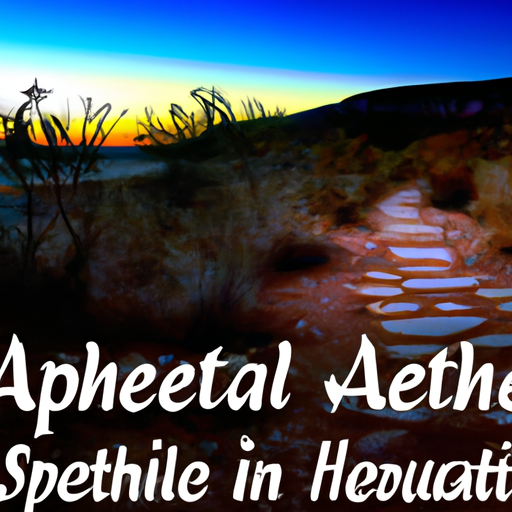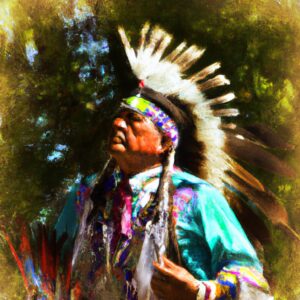– **The Future Leader: Preparing the Youth for Governance in Apache Society**
Introduction – – **The Future Leader: Preparing the Youth for Governance in Apache Society**
The future of any society relies heavily on the values, knowledge, and leadership skills imparted to its younger generation. In Apache society, the transmission of traditional wisdom and governance principles has always played a crucial role in shaping future leaders. These principles are deeply rooted in respect for nature, community cohesion, and the wisdom of elders. – **The Future Leader: Preparing the Youth for Governance in Apache Society** in Apache culture
Drawing from centuries of rich cultural heritage, the Apache people have developed a unique approach to preparing their youth for leadership roles. This involves a blend of formal education and hands-on experiences that teach critical decision-making skills and the importance of community consensus. Such experiences enable young leaders to navigate the complexities of modern governance while staying true to their cultural values. – **The Future Leader: Preparing the Youth for Governance in Apache Society** in Apache culture
“It is not enough to prepare our youth for the future; we must also prepare the future for our youth,” as an old Apache saying goes.
In today’s rapidly changing world, equipping young Apache leaders with both traditional wisdom and contemporary skills is more important than ever. By fostering a deep connection to their heritage and community, these future leaders can address modern challenges with a grounded, holistic perspective. The blend of old and new empowers them to contribute meaningfully to both their local communities and the broader society. – **The Future Leader: Preparing the Youth for Governance in Apache Society** in Apache culture
This article aims to explore the methodologies and philosophies that guide the preparation of youth for governance in Apache society. It delves into the educational programs, mentorship practices, and cultural teachings that collectively cultivate the leaders of tomorrow. Through this exploration, we gain valuable insights into how traditional wisdom can be harmonized with modern governance, ensuring a resilient future for the Apache community.
History
The Apache society has a long history of valuing and nurturing leadership from a young age. Rooted in a deep respect for nature, community, and spiritual teachings, Apache wisdom has always emphasized the importance of preparing the youth for future governance roles. Traditionally, elders played a crucial role in mentoring young individuals, imparting knowledge through storytelling and hands-on experiences.
Apache leaders were often chosen not solely for their prowess in warfare or hunting, but for their wisdom, diplomacy, and ability to lead with integrity. The process of training future leaders involved teaching them the significance of humility, honor, and the well-being of the community. Lessons were often conveyed through oral traditions, reinforcing values that would guide the youth throughout their lives.
“The greatness of a leader is measured by the sacrifices they make for the benefit of their people,” an old Apache saying goes, encapsulating the essence of their leadership philosophy.
In modern times, the principles of traditional Apache leadership intertwine with contemporary educational practices to equip the youth with the skills needed for governance. Initiatives may include formal education on governance and policy, combined with traditional rites of passage and communal responsibilities. By integrating these approaches, Apache society continues to honor its heritage while ensuring that future leaders are well-prepared to guide their communities.
An Apache story
During the early years of Apache society, leadership was earned through wisdom, courage, and the ability to guide the people through both prosperous and challenging times. One story tells of a young warrior named Naiche, whose determination to learn from his elders set him on a path to become a respected leader. As a child, Naiche would listen intently to the stories and teachings shared around the campfire, understanding that these lessons were the foundation of his people’s governance.
Naiche’s journey to leadership was not easy; it required patience, humility, and sacrifice. He often sought the counsel of the tribe’s wisest elder, who once told him,
“The greatest leader is not the one who seeks power, but the one who is chosen by the hearts of the people. Lead with integrity and the spirit of our ancestors will guide you.â€
Inspired by these words, Naiche devoted himself to learning the skills necessary to protect and provide for his tribe. He participated in hunts, mediated disputes, and studied the natural world to gain a deeper understanding of his environment. Through these experiences, he developed a vision for the future of his people, one rooted in the traditions of the past yet adaptable to the challenges of the future.
– **The Future Leader: Preparing the Youth for Governance in Apache Society** – Naiche’s rise to leadership was marked by a series of trials where he demonstrated his ability to think strategically, act decisively, and prioritize the well-being of his community. One winter, when food was scarce, he organized a successful hunt that ensured the survival of the tribe. This act solidified his reputation as a capable and compassionate leader, earning him the respect and trust of his people.
The story of Naiche serves as a guiding light for the youth of Apache society, emphasizing the importance of learning from elders, embracing responsibility, and leading with a spirit of service. This tale of perseverance and wisdom continues to inspire new generations, reminding them that true leadership is forged through experience and a deep connection to their cultural heritage.
– **The Future Leader: Preparing the Youth for Governance in Apache Society** –
“Long ago, in a time when our ancestors roamed these lands free and united,” Taza started, “there existed a young warrior named Naiche. His heart was brave, and his spirit was fierce, but he lacked the wisdom to lead.”
The children huddled closer, entranced by the elder’s words. Taza’s eyes glimmered as he described the ancient traditions.
“One stormy night, Naiche sought the guidance of Itza-chu, the respected seer. ‘I wish to lead our people,’ Naiche declared boldly. Itza-chu, with her silver hair flowing like the sacred river, replied, ‘To lead, you must first understand the hearts of your people and the spirit of our land.'”
Taza made dramatic gestures, portraying the intensity of the seer’s wisdom. He continued, detailing how Naiche embarked on a journey through treacherous mountains and arid deserts, seeking connection with every element of his world.
“He spoke to the ancient oak, learning patience; he watched the eagle, understanding vision; he listened to the song of the river, grasping flexibility,” Taza recounted passionately. “And from his elders, he received the stories of our ancestors, the laws of our people, and the strength of our community.”
The elder paused, letting the silence embrace the eager listeners. He then concluded his story with a somber lesson.
– **The Future Leader: Preparing the Youth for Governance in Apache Society** –
“‘When Naiche returned, he was greeted not with cheers, but with respect and trust. For in his absence, he had not only learned to lead but also to listen and understand,'” Taza pronounced solemnly. “The future leader serves his people, putting their needs above his desires. True governance is born from the heart and soul of our heritage.”
The fire crackled, sending tiny sparks into the night sky. The children, eyes wide with admiration and understanding, felt the weight of the lesson. Taza leaned back, smiling gently.
“Remember, to lead is to serve. Cherish our traditions, respect our land, and listen to your elders. This is the way of the Apache.”
Implementing it in your life
To implement the ideas from this article in your life, begin by embracing the Apache philosophy of interconnectedness. Understand that leadership is not just about personal ambition but about serving the community and maintaining harmony. Engage with your community, listen to their needs, and make decisions that reflect collective well-being.
Incorporate the values of humility, patience, and respect for nature that are pivotal in Apache wisdom. These principles foster an environment where future leaders can thrive by staying connected to their roots and embracing a holistic approach to governance. Encourage the youth to learn from elders who embody these values, as intergenerational knowledge transfer is crucial.
- Spend time volunteering in community service projects to understand the needs and dynamics of your community.
- Organize or attend workshops that focus on traditional skills and cultural knowledge sharing.
- Engage in discussions with elders to gain wisdom and insights into leadership practices.
- Develop a practice of regular reflection or meditation to connect with nature and remain grounded.
- Mentor younger individuals and encourage them to take on leadership roles within small projects.
- Promote sustainability and environmental consciousness in personal and community initiatives.
- Collaborate with others to create inclusive and participatory decision-making processes.
By following these steps, individuals can grow personally and enhance their leadership capabilities. Engaging with the community and learning from elders helps in developing empathy and a deeper understanding of governance.
Practicing sustainability and staying connected with nature ensure that leaders remain humble and grounded. Ultimately, these steps foster a balanced approach to leadership, deeply rooted in respect and communal harmony.
Conclusion – – **The Future Leader: Preparing the Youth for Governance in Apache Society**
In embracing Apache wisdom, the future of governance rests on nurturing leadership qualities among the youth. By instilling values such as resilience, respect for nature, and community-oriented thinking, young individuals can transform into adept leaders. This holistic approach ensures that future leaders are not only strategic and visionary but also empathetic and ethically grounded.
Teaching and mentoring the youth in the traditions and principles of Apache society prepares them for the complex challenges of governance. These values encourage adaptability and problem-solving, which are crucial in today’s rapidly changing world. The involvement of elders in this educational journey underlines the importance of intergenerational learning and the continuity of cultural heritage.
The call to action is clear: invest in the youth by integrating Apache teachings into modern education frameworks. Communities should prioritize leadership programs that blend traditional wisdom with contemporary skills. By doing so, we pave the way for a new generation of leaders who are both rooted in their heritage and ready to innovate for the future.
The image and article have been augmented with AI.
Further Resources:
- What is the significance of the bow and arrow in Apache spiritual symbolism?
- How do Apache spiritual beliefs influence their views on leadership and governance?
- What is the importance of the concept of harmony in Apache spirituality?
- What is the importance of silence and solitude in Apache spiritual practices?
- What is the role of the spirit world in Apache spiritual beliefs?
- What is the significance of the eagle in Apache spiritual beliefs?
- How do Apache spiritual practices influence their concept of wisdom and knowledge?
Thank you for reading!







